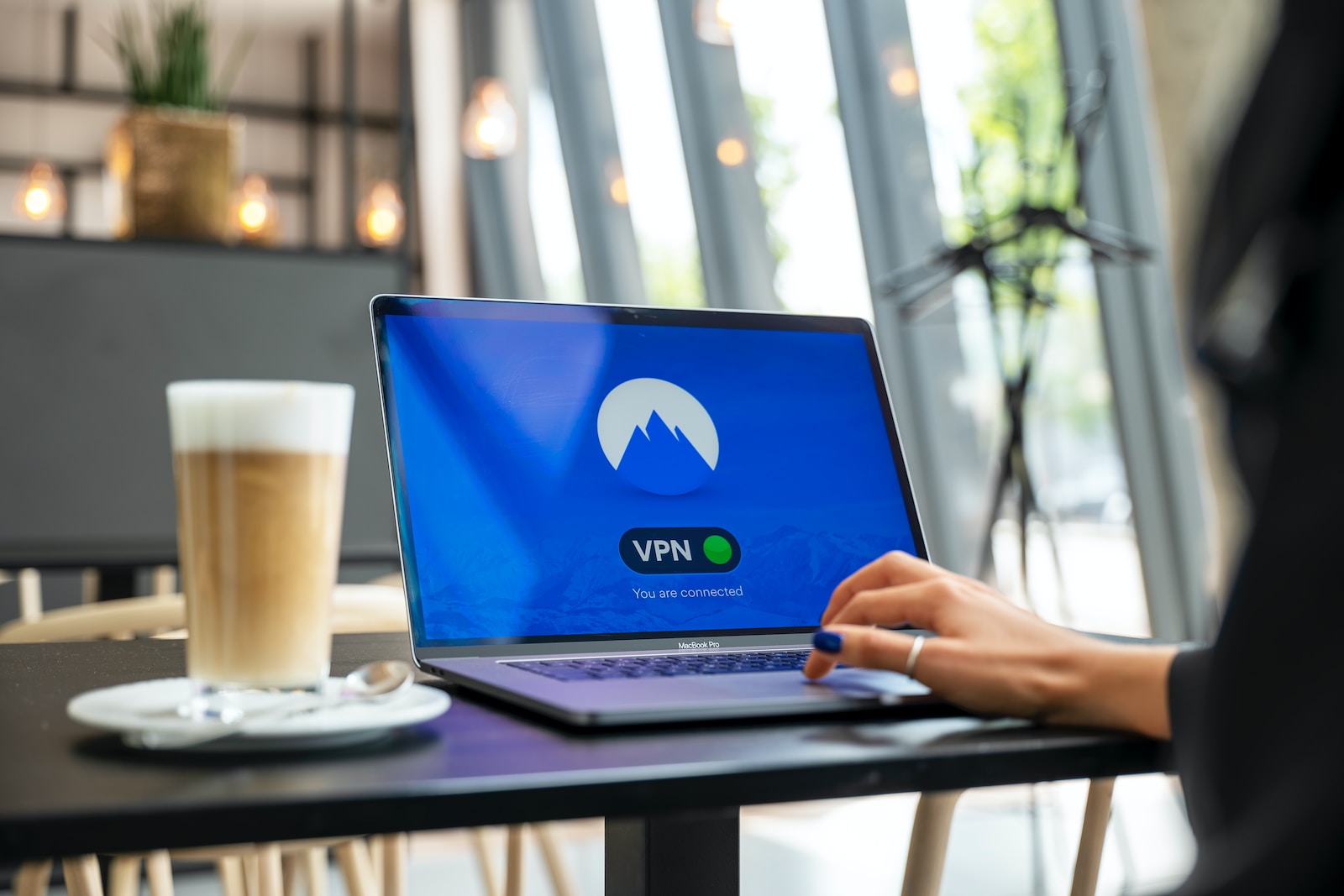Introduction:
A Digital Battleground: TOR vs. VPN
In the vast landscape of the internet, where privacy breaches and data theft lurk in every corner, two technologies have emerged as powerful shields against cyber threats – TOR and VPN. As we navigate through the virtual realm, understanding these tools becomes crucial to protect our online identities. So, let’s embark on a journey to unravel the mysteries of TOR and VPN while exploring their contrasting approaches to online security.
Brief Overview of TOR and VPN:
TOR: Anonymity in Layers
The Onion Router (TOR) is a free software that enhances privacy by concealing users’ online activities through a network of volunteer-operated servers or nodes. Each data packet sent through TOR is encrypted multiple times, like layers of an onion, hence its name.
As these packets traverse various nodes before reaching their destination, they become virtually impossible to trace back to the original source. With TOR’s decentralized architecture, it grants users unparalleled anonymity by obfuscating their IP addresses and making it difficult for anyone monitoring network traffic to identify them.
VPN: Securing Your Digital Footprints
A Virtual Private Network (VPN) provides a secure tunnel between your device and the internet by encrypting all data that passes through it. By connecting to a remote server operated by the VPN provider, your online traffic appears as though it originates from that server’s location rather than your own.
This masking of IP addresses ensures that even your Internet Service Provider (ISP) cannot monitor or track your activities effectively. Additionally, encryption algorithms employed by reputable VPN services prevent unauthorized access to your sensitive information while transmitting data over public networks.
Importance of Online Security:
The Fragile Web We Weave
In this digital age where our lives intertwine with the internet, online security has become a paramount concern. With every click, tap, or swipe, we leave behind digital footprints containing our personal information that can be exploited by hackers, corporations, or even governments.
Cyber threats such as identity theft, financial frauds, and surveillance have become pervasive dangers. Hence, safeguarding our online presence is not merely an option but a necessity.
Preserving Privacy and Freedom
Online security encompasses more than just protecting our personal data; it also nurtures our fundamental right to privacy and freedom of expression. In an era where governments tighten their grip on cyberspace and surveillance becomes increasingly intrusive, TOR and VPN present themselves as powerful tools to preserve individual liberties. By shielding our identities from prying eyes and obfuscating our online activities, these technologies empower us to exercise free speech without fear of repercussions.
In the upcoming sections, we will delve deeper into the workings of TOR and VPN while comparing their security features side by side. Prepare to embark on an enlightening expedition into the realm of anonymity and privacy protection!
Understanding TOR
Definition and purpose of TOR (The Onion Router)
TOR, short for The Onion Router, is a free and open-source network that allows users to browse the internet anonymously. It was originally developed by the U.S. Navy to protect online communications, but it has since become a popular tool for privacy-conscious individuals around the world. The name “Onion Router” stems from its method of routing internet traffic through multiple layers of encryption, similar to peeling back layers of an onion.
How TOR works: onion routing and encryption layers
TOR operates by using a series of volunteer-operated servers called relays that are spread across the globe. When you use TOR, your internet traffic is wrapped in multiple layers of encryption before being sent through these relays.
Each relay only knows the IP address of the previous hop and the next hop, making it difficult for anyone monitoring the network to trace your online activities back to you. This process is known as onion routing because just like peeling an onion reveals its inner layers one by one, your data passes through successive encrypted layers as it travels through the TOR network.
Each relay decrypts only one layer of encryption before passing it on to the next relay until it reaches its final destination. This multi-layered approach makes it extremely challenging for anyone intercepting your traffic to uncover its origin or destination.
Advantages of using TOR: anonymity, bypassing censorship
One significant advantage of using TOR is its ability to provide a high degree of anonymity while browsing the web. By bouncing your traffic through multiple relays, TOR makes it incredibly difficult for anyone to identify you or track your online activities.
This feature can be particularly appealing when accessing sensitive information or conducting activities that require utmost privacy. Another advantage is that TOR allows users to bypass censorship and access websites or content that may be blocked in certain regions.
As TOR traffic is routed through various relays, it becomes challenging for authorities or internet service providers to identify and restrict access to specific websites. This can be especially valuable for individuals living in countries with strict online censorship policies, opening up avenues for free expression and access to information.
Limitations of TOR: slow connection speed, potential vulnerabilities
Despite its strengths, TOR does have some limitations that users should be aware of. One significant drawback is the impact on connection speed.
Due to the numerous layers of encryption and rerouting involved, browsing the internet through TOR can be significantly slower compared to using a regular connection. This delay is an inherent trade-off for the increased anonymity provided by the network.
Additionally, while TOR provides a high level of security and privacy when used correctly, it is not foolproof. There have been instances where vulnerabilities in the software or even rogue relays have been exploited by malicious actors.
It’s important to keep your TOR software up-to-date and ensure you’re using reputable versions from trusted sources to mitigate these risks. Overall, understanding how TOR works and its advantages as well as limitations will help you make informed decisions about whether it’s the right tool for your specific online activities.
Exploring VPNs
Definition and purpose of VPN (Virtual Private Network)
A VPN, short for Virtual Private Network, is a technology that creates a secure connection between your device and the internet. Its primary purpose is to protect your online activities by encrypting your data and routing it through a remote server.
This creates a virtual tunnel that shields your information from prying eyes, including hackers, government surveillance, or even your Internet Service Provider (ISP). Essentially, a VPN acts as a protective shield for your online presence.
How VPNs work: tunneling, encryption, and IP masking
To understand how VPNs work, let’s break it down into its core elements. First off, tunneling: when you connect to a VPN server, all the data you send or receive travels through an encrypted tunnel. This means that any information passing through this tunnel is protected and cannot be accessed by anyone else.
Next up is encryption: this refers to the process of transforming your data into an unreadable format using complex algorithms. Only devices with the correct decryption keys can make sense of the encrypted data.
This ensures that even if someone intercepts your internet traffic while using a public Wi-Fi hotspot or any other insecure network, they won’t be able to decipher what you’re doing online. IP masking: when you connect to a VPN server located in another country or region, your real IP address gets replaced with one associated with that server location.
This makes it appear as though you’re accessing the internet from another place altogether. By masking your IP address in this way, you gain an additional layer of privacy as it becomes harder for websites or advertisers to track your online activities.
Advantages of using VPNs: enhanced privacy, secure data transfer
Using a VPN comes with several advantages worth considering. Firstly, enhanced privacy: a VPN ensures that your online activities remain private and anonymous by encrypting your data and hiding your IP address. This is particularly important when accessing the internet in public places or countries with strict internet censorship.
Secondly, secure data transfer: a VPN provides a secure connection that protects your sensitive information from hackers or malicious entities. Whether you’re banking online, sharing personal documents, or conducting business transactions, the encryption provided by a VPN keeps your data safe from unauthorized access.
Limitations of VPNs: reliance on trustworthy providers, potential speed reduction
While VPNs offer significant benefits, it’s important to be aware of their limitations. One limitation is the reliance on trustworthy providers. Not all VPN services are created equal, and it’s crucial to choose a reputable provider that has strong security measures in place.
Opting for unknown or free VPN services may expose you to potential privacy risks or data breaches. Another limitation is the potential speed reduction.
Since your internet traffic has to travel through an additional server before reaching its destination, there can be some loss of speed. However, this speed reduction varies depending on factors such as server distance and the quality of your chosen VPN service.
Exploring VPNs unveils their value in terms of enhancing privacy and providing secure data transfer. While users should exercise caution in selecting trustworthy providers and understand the trade-off in terms of potential speed reduction, utilizing a reliable VPN can significantly bolster online security and protect one’s digital footprint from prying eyes.
Anonymity Level: TOR vs VPN
How TOR provides stronger anonymity by bouncing traffic through multiple relays
When it comes to anonymity, TOR takes the lead with its unique approach of bouncing internet traffic through a series of relays. This process, known as onion routing, involves encrypting data multiple times and routing it through several volunteer-operated servers.
By doing so, TOR effectively disguises the source IP address and makes it difficult for anyone to trace the origin of the communication. Each relay only knows the IP address of its immediate predecessor and successor, ensuring that no single entity can identify both ends of the connection.
How a good VPN can also provide a high level of anonymity by masking IP addresses
While TOR may have an edge in terms of anonymity due to its multi-hop network design, VPNs offer their own level of privacy protection by masking users’ IP addresses. A reputable VPN service acts as an intermediary between your device and the websites or online services you are accessing. It assigns you a different IP address from one of its servers located in various locations around the world.
This means that your true IP address is hidden from prying eyes, making it challenging for third parties to track your online activities back to you. It is important to note that not all VPNs are created equal in terms of their commitment to privacy and security.
A good VPN provider will have strict no-logs policies, meaning they don’t store any information about your online activities or connections made through their service. Additionally, they should employ robust encryption protocols to ensure that your data remains secure during transmission.
Encryption Strength: TOR vs VPN
The multiple encryption layers used in the TOR network
TOR’s emphasis on security extends beyond anonymizing user traffic; it also employs strong encryption measures throughout its network infrastructure. The data passing through the TOR network is encrypted multiple times, with each relay only able to decrypt one layer, effectively obscuring the original message. This multi-layered encryption adds an extra layer of protection, ensuring that even if a malicious entity manages to intercept the traffic, they would only have access to a fraction of the information.
The strong encryption protocols employed by reputable VPN services
Similarly, reputable VPN services utilize robust encryption protocols to safeguard user data. Commonly used protocols include OpenVPN and IKEv2/IPSec, which provide strong encryption and authentication mechanisms.
These protocols establish secure tunnels between your device and the VPN server, ensuring that any communication passing through is encrypted and private. It’s worth noting that while both TOR and VPNs employ encryption techniques, their approaches differ slightly.
TOR primarily focuses on encrypting traffic between relays in its network, whereas a VPN encrypts traffic between your device and its server. Therefore, when using a VPN in combination with other online security measures such as HTTPS browsing or end-to-end encrypted messaging apps, you can establish comprehensive protection for your online activities.
Vulnerabilities and Risks: TOR vs VPN
Potential weaknesses in the design or implementation of the TOR network
Despite its strengths in anonymity and encryption, TOR is not entirely without vulnerabilities. One potential weakness lies in its reliance on volunteers to operate relays. While most volunteer-operated relays are trustworthy individuals contributing to maintaining privacy rights globally, there is always a risk of malicious actors infiltrating this network by running compromised relays or conducting surveillance at certain exit nodes where unencrypted traffic emerges into the public internet.
Risks associated with untrustworthy or poorly managed VPN providers
On the other hand, when it comes to VPNs, users must exercise caution in selecting a trustworthy provider. Some low-quality or free VPN services might compromise user privacy by collecting and selling browsing data to third parties.
To mitigate these risks, it’s crucial to opt for reputable VPN providers that have a proven track record of respecting user privacy and employing robust security measures. Ultimately, making an informed choice between TOR and VPN depends on your specific needs and threat model.
While TOR offers stronger anonymity due to its multi-hop routing, VPNs can provide a high level of privacy when used with trusted providers. By combining multiple security measures such as encryption, anonymity, and cautious provider selection, users can significantly enhance their online security posture.
Use Cases for TOR and VPN
When to use TOR:
TOR, with its intricate network of relays and encryption layers, is primarily designed for individuals who require the utmost anonymity. It’s a vital tool when accessing the dark web or engaging in activities where extreme privacy is crucial. The dark web, an encrypted part of the internet not indexed by search engines, often harbors illicit activities that necessitate users to conceal their identity.
By routing your traffic through TOR’s multiple relays, you can obfuscate your online presence and protect yourself from prying eyes. Additionally, TOR becomes invaluable when evading government surveillance or censorship in highly restrictive countries.
In nations where internet access is heavily monitored and restricted, such as China or Iran, using TOR can help bypass these restrictions and maintain freedom of expression. By encrypting your data and bouncing it through numerous relays across different countries, you can make it nearly impossible for authorities to track your online activities or censor your content.
When to use VPN:
While TOR prioritizes anonymity above all else, VPNs offer a more versatile approach to online security. They are particularly useful when accessing public Wi-Fi networks in airports, cafes, or hotels that are susceptible to hackers seeking to intercept sensitive data.
By establishing a secure tunnel between your device and the VPN server you connect to, all incoming and outgoing data becomes encrypted. This ensures that even if someone manages to intercept it on the public network, they won’t be able to decipher its contents.
Moreover, in situations where anonymity is desirable but not as critical as with TOR usage scenarios mentioned before (e.g., browsing privately at home), a reputable VPN service can provide sufficient privacy protection. VPNs offer IP masking features that anonymize your online presence by assigning you a different IP address from their server locations worldwide.
Conclusion
In the battle between TOR and VPN, both tools serve different purposes and excel in specific use cases. TOR shines when it comes to extreme anonymity needs, such as accessing the dark web or evading surveillance in oppressive regimes.
Its multi-layered encryption and intricate network of relays provide robust privacy protection. On the other hand, VPNs offer versatile security options suitable for everyday use.
They are valuable for protecting your data on public Wi-Fi networks and maintaining a certain level of privacy while browsing at home. By encrypting your internet traffic and masking your IP address, reputable VPN services ensure that your online activities remain secure.
Ultimately, choosing between TOR and VPN depends on your specific requirements. If you prioritize absolute anonymity or need to access the dark web, TOR is the way to go.
However, if you value flexibility, security on public networks, and an extra layer of privacy without sacrificing too much speed, a reliable VPN service will meet your needs effectively. Whichever option you choose, taking steps towards securing your online presence is essential in an increasingly interconnected world.
 Skip to main content
Skip to main content


